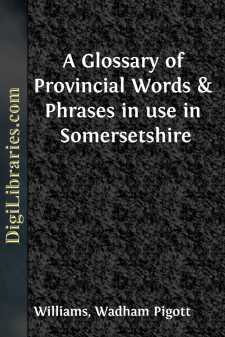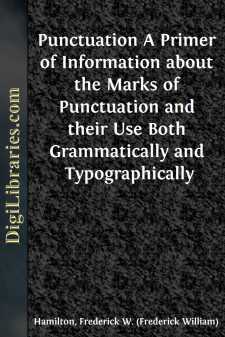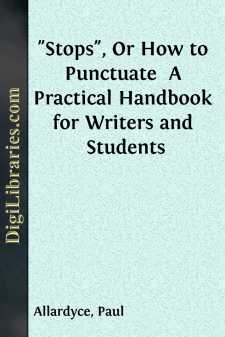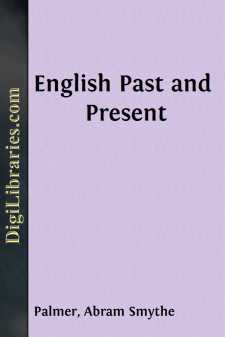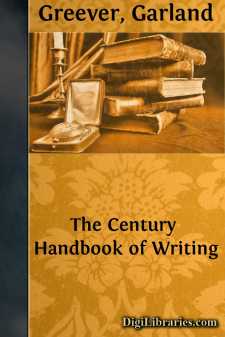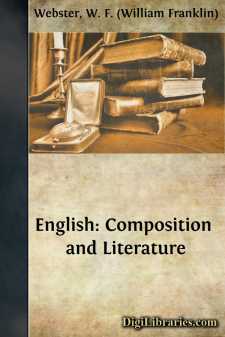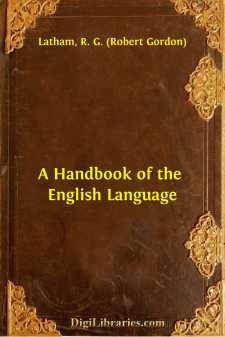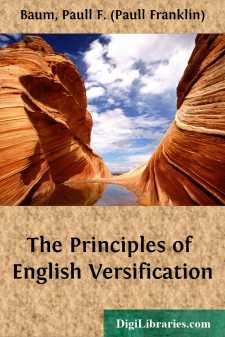Language Arts & Disciplines
Language Arts & Disciplines Books
Sort by:
INTRODUCTION. The following paper from the pen of Dr. Prior was read at a Conversazione of the Society at Taunton, in the winter of 1871, and as it treats the subject from a more general point of view than is usually taken of it, we print it with his permission as an introduction to our vocabulary:— On the Somerset Dialects. The two gentlemen who have undertaken to compile a glossary of the Somerset...
more...
INTRODUCTION Punctuation is a device by which we aid words to tell their story. Words have done this at times without such aid, and may now do so, but at constant risk of serious misunderstanding. This can be easily seen by reading the following lines printed as they would have been written in an ancient manuscript....
more...
by:
Paul Allardyce
INTRODUCTION The Use of Punctuation.—Punctuation is a device for marking out the arrangement of a writer's ideas. Reading is thereby made easier than it otherwise would be. A writer's ideas are expressed by a number of words arranged in groups, the words in one group being more closely connected with one another than they are with those in the next group. An example will show this grouping...
more...
ENGLISH A COMPOSITE LANGUAGE “A very slight acquaintance with the history of our own language will teach us that the speech of Chaucer’s age is not the speech of Skelton’s, that there is a great difference between the language under Elizabeth and that under Charles the First, between that under Charles the First and Charles the Second, between that under Charles the Second and Queen Anne; that...
more...
by:
Garland Greever
Fragments Wrongly Used as Sentences 1. Do not write a subordinate part of a sentence as if it were a complete sentence. Wrong: He stopped short. Hearing some one approach. Right: He stopped short, hearing some one approach. [Or] Hearing some one approach, he stopped short. Wrong: The winters are cold. Although the summers are pleasant. Right: Although the summers are pleasant, the winters are cold....
more...
PREFACE In July, 1898, I presented at the National Educational Association, convened in Washington, a Course of Study in English. At Los Angeles, in 1899, the Association indorsed the principles of this course, and made it the basis of the Course in English for High Schools. At the request of friends, I have prepared this short text-book, outlining the method of carrying forward the course, and...
more...
CHAPTER I. GERMANIC ORIGIN OF THE ENGLISH LANGUAGE.—DATE. § 1. The first point to be remembered in the history of the English language, is that it was not the primitive and original tongue of any of the British Islands, nor yet of any portion of them. Indeed, of the whole of Great Britain it is not the language at the present moment. Welsh is spoken in Wales, Manks in the Isle of Man, and Scotch...
more...
by:
Henry Bate
Usage and Custom are the Rules and Measures of every Language, and the Rules of Grammar have nothing more to do, than to teach it. The Grammar is to be fashioned from the particular Language, it treats of, and not the Language from the Grammar. For want of following this regular Plan, our Modern GRAMMARIANS have introduced the Grammar Rules of other Languages into their own; as if all Language was...
more...
by:
Alexander Hume
OF THE GROUNDES OF ORTHOGRAPHIE.Cap. 1. 1. To wryte orthographicallie ther are to be considered the symbol, the thing symbolized, and their congruence. Geve me leave, gentle reader, in a new art, to borrow termes incident to the purpose, quhilk, being defyned, wil further understanding. 2. The symbol, then, I cal the written letter, quhilk representes to the eie the sound that the mouth sould utter. 3....
more...
PREFACE Most of the older discussions of English versification labored under two difficulties: an undue adherence to the traditions of Greek and Latin prosody more or less perfectly understood, and an exaggerated formalism. But recently the interest and excitement (now happily abated) over free-verse have reopened the old questions and let in upon them not a little light. Even today, however, a great...
more...


